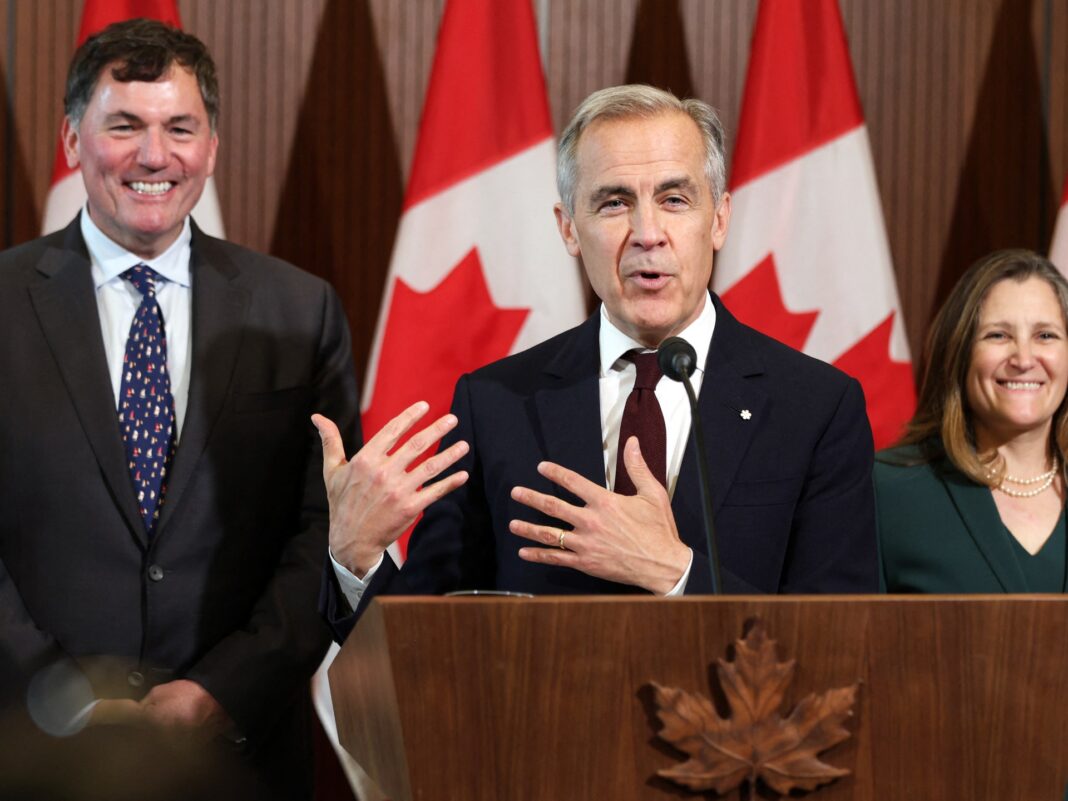Prime Minister Mark Carney pledges to shift defence spending away from the US and towards the EU.
Canada will meet NATO’s defence spending threshold of 2 percent this year as it shifts spending away from the United States and strengthens its relationship with the European Union, according to Prime Minister Mark Carney.
Carney made the announcement on Monday, warning that in a “darker” world, Canada must reduce its security dependence on the US. In a speech at the University of Toronto, he said the country would hit the target five years earlier than anticipated.
Canada has been realigning its defence partnerships to better align with the EU, which marks a significant break from Ottawa’s longstanding reliance on the US. The country plans to buy more defence equipment, including fighter planes, from Europe.
His government is also reviewing the planned purchases of F-35 jets from the US to assess alternative options.
“Our military infrastructure and equipment have aged, hindering our military preparedness,” Carney said.
“Only one of our four submarines is seaworthy. Less than half of our maritime fleet and land vehicles are operational. More broadly, we are too reliant on the United States.”
“The threats that Canada faces are multiplying,” he added.
Carney’s pledge follows similar commitments by other NATO members and comes after sustained pressure from US President Donald Trump for allies to increase defence spending. Increasingly, hostile language, including Trump’s jabs at turning Canada into the 51st US state, has increased tensions with Ottawa.
Canada spent 1.33 percent of its gross domestic product (GDP) on defence in 2023, according to NATO data.
Since taking office in mid-March, Carney has issued a series of stark warnings about what he describes as a shift in US global leadership under Trump.
“The United States is beginning to monetise its hegemony: charging for access to its markets and reducing its [relative] contributions to our collective security,” Carney said, criticising Trump’s trade policies.
“We should no longer send three-quarters of our defence capital spending to America,” the prime minister added.
He also warned that Canada has “been jolted awake by new threats to our security and sovereignty,” citing Russia and China as key concerns.
Carney framed the increase in defence spending as a strategic necessity “to protect Canadians, not to satisfy NATO accountants”.
In April, NATO announced that 22 of its 32 members had reached the 2 percent spending target. European countries, in particular, have ramped up military budgets in the wake of Russia’s 2022 invasion of Ukraine, and NATO now considers the 2 percent threshold a minimum requirement.


